Yes AI content is hurting website SEO more than its helping.
And What No One’s Telling You About the Real Consequences
I want to start off by saying I know that the SEO gurus who, in 2023 when ChatGPT was released, used AI to spam thousands of websites’ rankings.
Those SEO gurus’ websites got hit hard with penalties from Google. They stayed quiet about that and they will disagree with this article, as instead now they’re all talking about how to optimize for AI overviews — the 0.97 CTR rate — because they aren’t interested in you, they are interested in selling their products. It’s easy for these guys who have thousands of followers across the web to seem credible, even though they spew the same garbage out weekly. Articles like “Google volatility,” articles about Google updates, articles on how to rank. And then “how to rank now” a week later.
The truth is they don’t know and can’t start a fresh website without all their resources and rank it.
My point here is that most of what you read on the web is stuff that’s regurgitated from them, which is in turn regurgitated by other SEO and website design companies, and in turn by AI.
We don’t follow half the stuff we read on the web and don’t have thousands of followers or a ton of resources, but we can build great websites and do SEO that makes websites rank. You need real conversations, clear goals, and a tailored approach.
For businesses in Johannesburg, working with a local Johannesburg web design & SEO agency ensures your website isn’t just AI-generated fluff—it’s strategically crafted to perform in your market.
Now let’s get to why you started reading this article.
Website Design Starts With Communication — and AI’s Already Breaking It
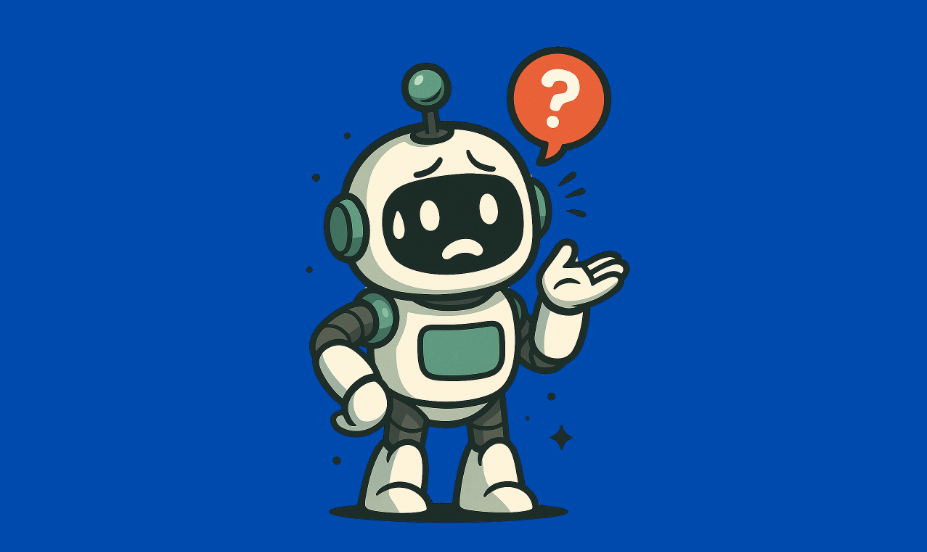
AI ruins your website SEO (and design) right from the start at the most critical point of communication — the website brief.
The website brief is what website design companies use to determine how your website should look, how the writing should be done. We take the confirmation of your target audience in, right down to the very images we select. How will your website be used? As a catalogue or a lead generator? An online store? This preplanning is incredible important for website SEO. Here’s an example of a brief generated by AI asking a website design company…
Question 1: “Can you make a website for a sports company?”
What AI Assumes:
This question covers everything needed to start — it’s clear and open-ended.
The Reality:
This is way too vague. Is the site for selling products (e-commerce), just showing info (catalog), taking bookings (like for classes or matches), or driving followers to social platforms? Without knowing the goal, we can’t design anything meaningful.
Our Answer:
We’d ask:
- Can you tell us more about what your company does?
- Are you selling online, promoting a physical location, or trying to build a fanbase or following?
- How many products or services do you offer?
We tailor websites to fit your business goals — a shop needs very different features than a promotional page or a social-integrated site.
Question 2: “Can you show me some examples of websites you’ve built before?”
What AI Assumes:
Showing a few past projects is enough for the client to decide if we’re the right fit.
The Reality:
Without knowing the client’s goals, showing random portfolio pieces is pointless. Every brand has a unique style, industry, and objective — so our examples should be aligned with that.
Our Answer:
We’d respond:
Yes, but first let us understand your brand and goals so we can show you relevant examples.
Do you want something bold and visual, or minimal and product-focused?
We don’t just throw templates at you — we show what’s strategically relevant to what you need.
Question 3: “What do you need from me to get started?”
What AI Assumes:
The client gives a logo, some text, maybe a few images — and we’re good to go.
The Reality:
What we need depends on what kind of site we’re building. A full online store? We need product data, images, categories. A catalog? We’ll need high-quality visuals and info about each service or offering. A gym or club? We may need schedule info, staff bios, location photos, etc.
Our Answer:
We’d say:
It depends on your business type. If you’re selling products, we’ll need detailed product info and images. If you’re promoting a physical store, we’ll want images of the location, team, and facilities.
We’ll send you a tailored checklist once we know your goals.
Question 4: “How long does the whole process usually take?”
What AI Assumes:
Websites can be built in a set time frame — maybe a few days or a few weeks.
The Reality:
Timelines vary based on complexity. A fully custom site with e-commerce, stock management, and payment integration could take 30+ days. A simple brochure site might be live in under a week. It all depends on content readiness, features, and client response times.
Our Answer:
Once we know the scope, we can give you a real timeline. For example, a product-heavy e-commerce site takes longer than a service-based info page.
We’ll also factor in things like copywriting, images, feedback rounds, and integrations.
Question 5: “Will I be able to update the site myself later?”
What AI Assumes:
Everyone wants a CMS and will handle their own updates.
The Reality:
Some clients want full control — others want nothing to do with website tech. Some updates are simple (changing text), but others require backups, testing, or security work.
Our Answer:
We can absolutely make it editable — using a CMS you’re comfortable with (like WordPress, Shopify, or Webflow).
But we also offer full maintenance — so if you’d rather not worry about updates or security, we can manage that for you.
Let’s talk about what works best for your team.
BONUS Question AI Completely Missed:
What AI Left Out:
Marketing, audience, and technical setup — all critical to building a strategic website.
Here’s what should be asked instead:
- Is your business local, national, or international?
- How do you plan to market the site — SEO, social, paid ads?
- Do you already have a domain and hosting? Is it good enough?
- Do you need lead generation, chat features, or popups?
- Are your products allowed on major ad platforms (Google, Facebook, etc.)?
- Do you have a following on any platforms we should integrate (like Instagram or TikTok)?
- Do you want us to help with SEO — local, national, or global?
Our Perspective:
The success of your site depends on how it fits into your overall business and marketing strategy. That’s why a 5-question brief from AI isn’t enough. You need real conversations, clear goals, and a tailored approach.
AI can help generate ideas, but it can’t replace professional insight. When it comes to building a website that actually works for your brand, context is everything. If you’re using AI to create briefs or AI for SEO for your website or forms, make sure it’s a starting point — not the whole process.
So let’s say you do manage to get a good brief from AI or your website design company corrects the bad brief provided by AI. Now we are onto the content phase of the website.
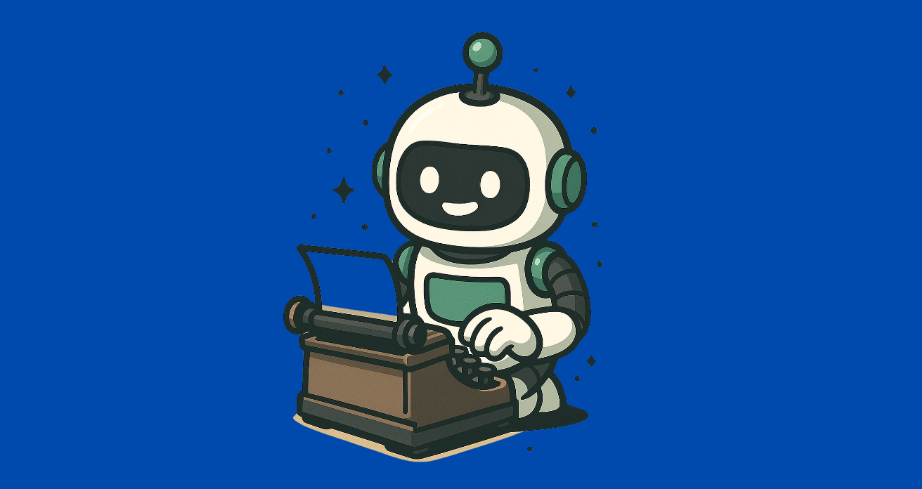
What you need to understand about AI is three important things:
1. AI is an aggregate of information already out there — and average website information is not good for SEO.
The aggregate is “safe.” So when you ask AI to write an SEO-optimized version of your article, it has a dataset of information that it works with, and the result is an aggregate. This is problematic for SEO in many ways.
Google, instead of spending millions of dollars fighting low-effort content, simply chooses to ignore it.
So when Google first started talking about E-A-T — Expertise, Authority, and Trust — that wasn’t about anything more than writing original content. Now, Google doesn’t often give away such clues about SEO, but this one is important because they need human content to feed Gemini, their AI model.
So they reward it because it feeds their end goals. Their AI cannot train on data produced by AI, and so to discourage it, they ignore and send low traffic volumes to sites that are AI-generated.
To double up on this, it’s long been known that duplicate content is also not favored by Google. And since AI is an aggregator and everybody is using it for writing, this causes massive SEO issues. Google is shifting more aggressively to ignoring this content and you can read more about that in Easy Mode on Google Is Ending.
2. AI Is Erasing Brand Voice — and That’s a Bigger Problem Than Website Rankings
The other more human aspect is user experience. I’m sure you’re familiar with the term banner blindness. Basically, it’s when a user sees something the same so much they ignore it. Ignoring websites destroys CTR and engagement rates, which affects SEO.
How does AI tie in? Well, again — if we’re all writing relatively the same content, then it all sounds the same.
Let’s assume your AI content somehow does rank.
- Who’s actually reading it?
- Do they remember it?
- Does it build your brand?
Probably not.
Because AI makes everything sound the same:
- Same structure
- Same tone
- Same safe, dull phrasing
I’m sure you’ve seen some of these phrases around:
“Elevate your brand,” “In today’s fast-paced world…,” “Unlock your potential with…,” “In conclusion…”
So when everything reads the same, for your brand not only Google — but even humans — will start ignoring your content.
It’s ironic that in an age of personalization, because of all the incredible data we get on websites, we’re choosing to do a full 180.
Where’s the brand voice?
We’ve actually done a comparison about how AI designs a website vs a human and documented the SEO and effects of that in our article “Should You Use AI to Generate Your Website?”
3. AI Isn’t Always Right — But It Is Confident
This is a dangerous part for your website SEO.
AI is programmed to do two things. Like most platforms, it’s designed to give you a dopamine hit, so it rewards whatever you say — even if it isn’t 100% correct. Most people take that first answer and run with it.
AI is also designed to mirror — meaning it reflects your own thoughts back to you. This is a psychology trick to keep engagement high and avoid disagreement. Something that is not needed in a critical thinking space like SEO.
So if you ask AI — and context is important here — “Is it realistic for my site to rank my sports website in the top 3 nationally?” it’s going to say:
“Yes — it’s possible to rank your sports website nationally, and here are the key factors to work on…”
Now I can tell you from my own experience: unless you are a big brand or want to go local, this is simply not possible.
Even massive companies with websites that have been around for ages don’t consistently hit ranking 1–3. So it sets a dangerous precedent because the user here believes this is the right answer, and when they want to do SEO on their website or hire a web development agency to do it — and this doesn’t pan out — they think they’ve done it wrong or the agency doesn’t know what they’re doing.
It’s not that AI does a bad job — it’s that it gives people the illusion that they’re doing a good one.
Just because you can make a Wix site with some ChatGPT content doesn’t mean it’s optimized. In fact, it’s probably damaging your website’s search engine visibility and brand trust before you even get a chance.
What Most SEO Marketers, Website Designers, and Business Owners Don’t Understand
AI is an extension of your knowledge. It can be a powerful tool to do whatever you like — including SEO.
But if you don’t have the right inputs, you will get the wrong outputs.
We constantly correct and refine when we use AI for any task, including SEO for websites, because we’ve been in the game for 10 years. And we immediately know what the bad advice is, what the overconfident advice is, what the mirroring is — and we toss that.
SEO is an ever-changing game. Google’s constantly updating its algorithms, and AI cannot keep up with that.
You need an SEO website design company that tests and is in this every day.
Because the real and ugliest truth about website SEO is that it’s play-by-ear.
And AI cannot do that.
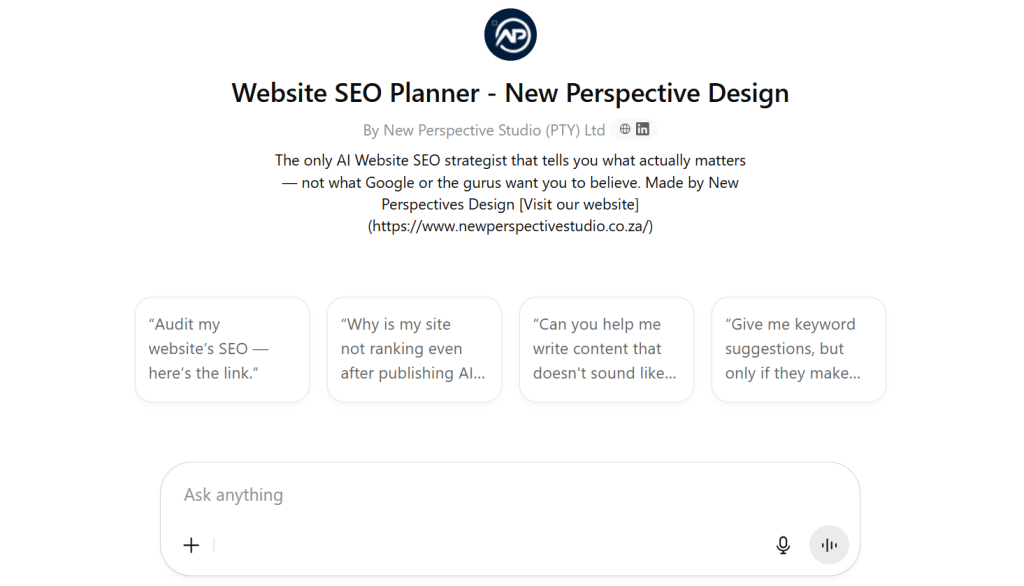
We built a custom Gpt with ready made prompts to assist you with your website SEO, so this is AI doing SEO for your website with a bit of help from a SEO company.

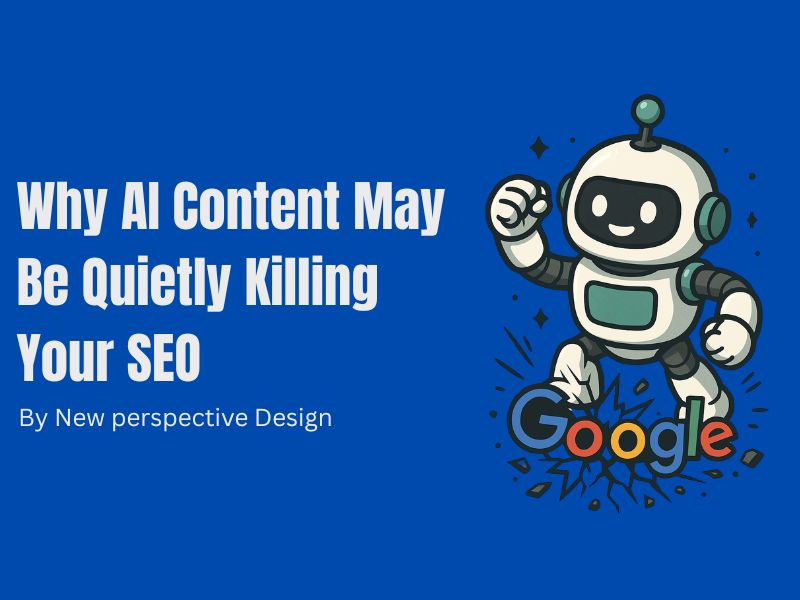

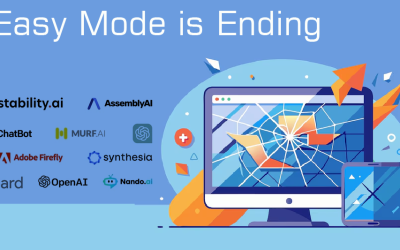
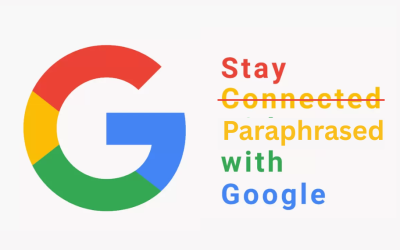

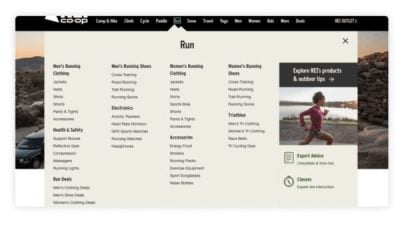
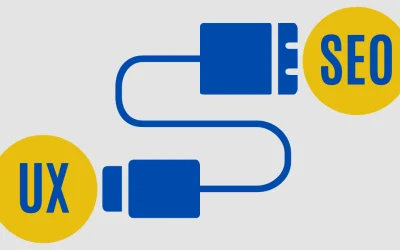
![The Impact of Having a Business Website: A Survey Conducted by New Perspective Design in South Africa [Case Study 2025]](https://www.newperspectivestudio.co.za/wp-content/uploads/2025/02/The-Impact-of-Having-a-Business-Website-survey.jpg)

0 Comments